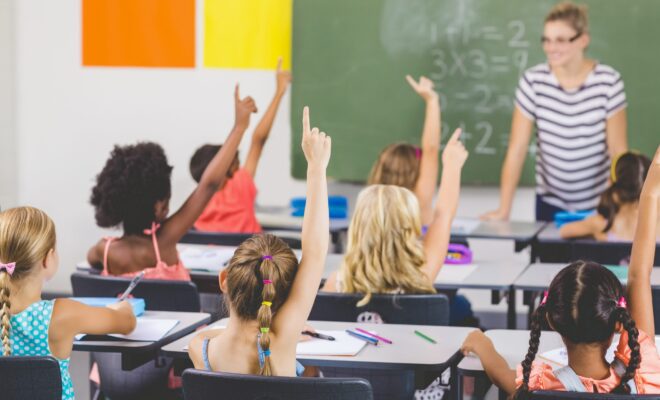SCHOOL AS ORGANIZATION

Introduction to School as Organization
The main types of state and independent schools include nursery schools, primary schools, secondary schools, faith schools, free schools, special schools and state boarding schools. These different types of schools in the education sector comprise of distinguished features. The initial type of schools is mainly nursery schools that basically strengthen the initial year’s base of the students and are funded by the government. Then comes private schools that are administered by private authorities therefore the expenses of education are bear by the parents instead of the government. Also, private schools have no obligations to follow the national curriculum. In addition to these schools, there are faith schools that are mainly concerned with religious education where policies and admission criteria are different from other schools. These schools are required to follow the national criteria. The schools run by the state of the country are known as free schools administered by the government authorities. The paying scale of the staff and the duration of school terms are different from other private schools.
Roles and Responsibilities
The roles and responsibilities of school governors include sustainability of effective education, enhancing the standard of education and promoting the methods and techniques of teaching in schools. The senior management team of any school is responsible to monitor daily practising of school activities. The significant task of the senior management team is to exercise flexible methods and techniques to ensure effective implementation of regular activities. SENCO is one of the statutory roles of the education sector that assist a pupil with “Special Education Needs” by providing additional support, guidance and services to teacher, parents and individuals engaged in the education process. The teachers possess a fundamental task in the education process. To develop the mental capabilities of the students, the teacher has to plan, arrange, and then deliver a lesson to the students that fulfil the requirement of the National Curriculum. The Support staff is considered as the essential part of an education system that is accountable to facilitate the teacher in their day to day activities. Support staff possesses high responsibilities of providing secretarial and technical support to the teaching staff.
The role of external professionals vital for the teaching staff and other relevant professionals. External professional such as Educational Psychologist can facilitate teachers with essential professional knowledge and specialist skills. The additional knowledge provided by an external professional can enable the teachers to guide their students more effectively.
Aims and Values of Schools
The aim can be defined as the attempt or intention of a person or an organization to accomplish a certain objective. The aim of the school is to offer knowledge, skill, expertise, and experience to their students that can enable them to become a well-cultured and well-behaved citizen of the society. For example, one of the basic aims of any school is to offer a caring and peaceful environment for their students where they can learn new positive habits and enhance their self-esteem. Values determine the importance or merit of something that is associated with high standards. The core values are the foundation of the communities and their cultural norms.
Laws and Codes of Practice That Affect Work in Schools
Health and Safety Act 1974 is one of the prominent acts that have highly influenced the environment in schools. The law ensures the implementation of effective safety practices that can protect students, teacher and other professionals engaged with the school environment. The health and Safety Act has introduced health and safety policies and relevant training to the staff members to overcome any uncertain situation in school. It is examined that the implementation of the Health and Safety Act 1974 has enabled the school children to learn new methods to face the challenge and difficulties. The Act has also allowed the staff members and children to put forward their views regarding health and safety issues in schools that were encouraged and taken into consideration. It is believed that improving results of young students has eventually accomplished the goal of the Health and Safety Act.
Purpose of School Policies and Procedures
The schools and other educational institutions comprise of policies and procedures to enable the daily operations to run effectively and thoroughly. Some of the important reasons for having policies in schools include the sustainability of the safe environment, implementation of quality education, and enforcement of acceptable behaviours. Policies concerning staff are introduced for the well-being and protection of the basic rights of staff members. Anti-bullying policy in schools guides the staff about techniques and strategies to tackle and overcome bullying issues.
Policies concerning pupil welfare ensure the sustainability of discipline and positive behaviour in school. Besides, these policies provide knowledge and general awareness to the children that could keep them secure. Child protection policy entails key points of protecting young people and children against suspected threats of society. Teaching and learning policies incorporate learning and assessment policies, special education need policies, an early year’s policies, and marketing policies. These policies play important role in ensuring a safe and secure learning environment for teachers and students. Besides, the main objective of these policies is to monitor that all the children are provided with equal opportunities in learning and other curriculum activities.
Roles and Responsibilities of National and Local Government for Education Policy and Practice
The national government is accountable to monitor the education services that must meet the requirement of the national curriculum. It is the fundamental duty of the national government to make the availability of quality education that could strengthen the early year foundation level of the children. Besides, the national government play a significant role in financing the education sector for research purposes that could develop the standard of education. The foremost contribution of the national government is to support those non-government organizations who participate in promoting the education sector. The national government develops these non-government organizations through different means such as a charity or voluntarily.
On the hand, the local government is responsible to ensure that essential resources and services are available with the schools to carry out daily activities smoothly. The local government is responsible to monitor the behavioural and management problems of school and to develop new policies and regulation that can overcome these types of behavioural issues. Providing training to the education staff members and another professional working in schools is compulsory for the local government. These training sessions are beneficial for the teaching staff to learn new methods and skills that can subsequently assist them in educating children.















